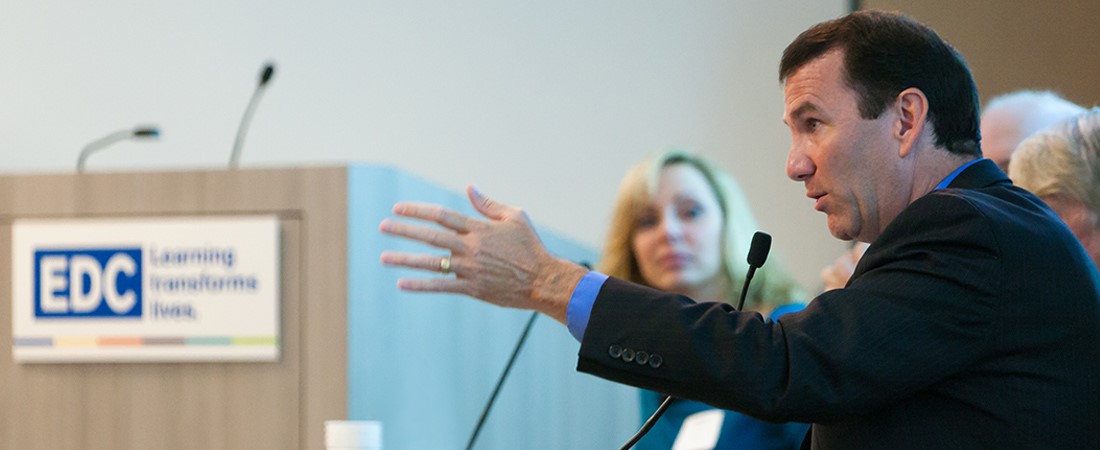EDC Supports Massachusetts Substance Use Prevention Efforts

Representative James Cantwell joined prevention specialists and public health experts during a recent meeting at EDC.
One hundred and seventy public health workers and substance abuse prevention staff from across Massachusetts gathered at EDC on September 22 for a daylong conference on substance use prevention initiatives in the state.
Conference attendees discussed strategies, research, and ideas to advance prevention initiatives in their communities. The conference was sponsored by EDC’s Massachusetts Technical Assistance Partnership for Prevention (MassTAPP).
At the top of the agenda was the state’s opioid crisis, which continues to take lives in communities throughout Massachusetts. According to the Massachusetts Department of Public Health, there were 1,531 confirmed deaths due to opioid overdose in 2015—an 18 percent increase over 2014.
Massachusetts State Representative James Cantwell spoke about the importance of prevention during a morning session. Cantwell sponsored legislation passed in June that established a commission to improve behavioral health promotion and prevention activities throughout the state.
“We have to unleash the power of prevention,” he said. “Our communities are continuing to suffer from the effects of the opioid epidemic. We can’t arrest our way out of this problem.”
“The Commonwealth owes a debt of gratitude to the local community coalitions and EDC’s MassTAPP for their life-saving work to prevent addiction in communities across the Commonwealth,” he added.
EDC’s Lauren Gilman, director of MassTAPP, says that the rising number of opioid overdoses speaks to the need for more prevention activities. She points to the work of community-based prevention coalitions, schools, and law enforcement as being essential in decreasing the use of alcohol and other drugs among young people, changing community norms, and connecting those who are using substances with services before they begin using more dangerous drugs.
“We are in the midst of a public health crisis, and we need to take action to save lives,” says Gilman. “But unless we focus some of our energy and resources on upstream prevention, we are never going to reduce the need for these life-saving measures.”
Photo: Representative James Cantwell joined prevention specialists and public health experts during a recent meeting at EDC.